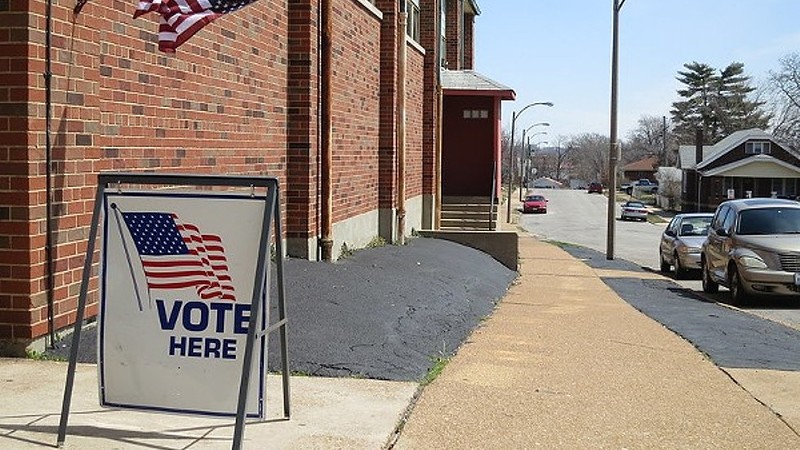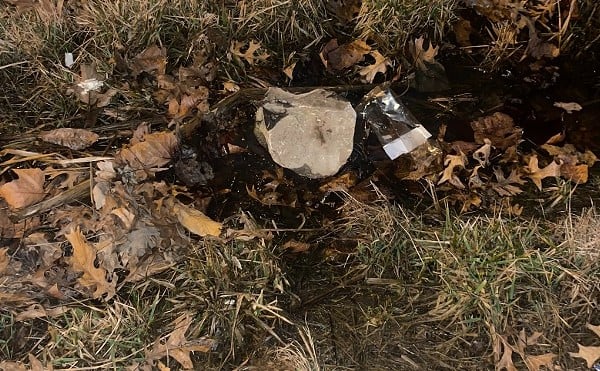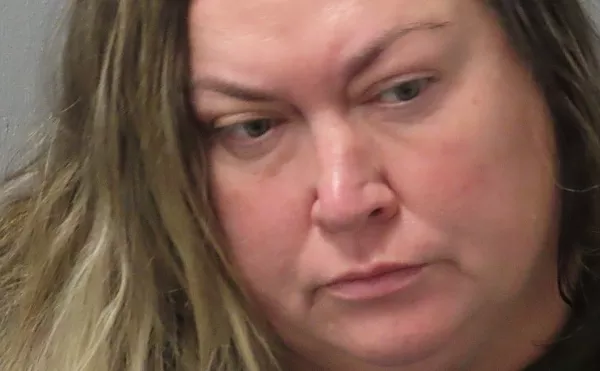
FILE PHOTO
In states across the country, election integrity laws have resulted in voter suppression.
Three WashU students from Indiana, Georgia and Texas highlight issues with voter ID laws and other voter-suppression tactics in light of the midterm election tomorrow.
In 2021, a mural of John Lewis on the Washington University campus was vandalized by the Patriot Front, a white supremacist group. It was painted at the underpass that we and thousands of students walk through daily. To know that we could have crossed paths with white supremacists is horrifying. Racism did not end in 1865, 1963, or 2008. It is here, smeared on the walls of our campus.
As three college students anticipating voting in our first federal election, we cannot ignore issues like gun control, police funding and climate change. Unfortunately, the state knows this. And it is working to prevent students like us from voting.
Governors Parson, Abbott and Kemp have all recently signed voter suppression legislation making voting significantly more difficult for college students. Georgia’s SB 202 restricts the time-frame to request absentee ballots while Missouri’s HB1878 reduced the types of eligible ID to Missouri and federal IDs only.
Why might governors keep students from requesting absentee ballots or using college IDs at poll sites? Because youth votes matter. Some states, like Virginia, have pro-democracy policies, including same-day voter registration, but Missouri and Texas don’t. Texas removed early voting locations and Missouri banned ballot boxes outright. Despite repeated efforts to downplay the youth vote, we are voting at historically high levels. We are the ones in line to fight for our futures.
We don’t just line up either. We're running phone banks and text banks to reach over 10,000 Asian American voters in Missouri. In the 2020 Senate runoffs in Georgia, one of us witnessed ballots rejected for trivial signature discrepancies and helped "cure" ballots. Curing a ballot lets voters know that there is an issue with their mail-in ballot, giving voters a chance to correct it so the ballot can be counted. Without sufficient resources or clear instructions to the electorate, too many ballots went uncured.
Juggling different state voting laws only amplifies voter suppression. If a WashU student from Texas wishes to vote, the student must submit a Texan mail-in ballot application by October 28th. However, if the application is rejected, the student likely also missed the Missouri voter registration deadline on October 12th. Effectively, that person has lost the ability to vote. A new federal Voting Rights Act is necessary to protect the vote and raise standards across states.
Disenfranchisement extends beyond campuses and is particularly prominent among immigrant voters: our parents and grandparents. Hardly any counties provide ballots in Asian languages, much less ballots in our ancestral languages — Tagalog, Nepali and Hindi. Voting is already difficult to navigate for English-speaking, natural-born citizens, but the lack of multilingual ballots and poll workers makes it increasingly difficult for limited English-speaking immigrants.
Last July, the same group that defaced our campus joined the anti-democratic movements spearheaded by many of our governors. During a march in Philadelphia, members of Patriot Front screamed that the election was “stolen.” Ask yourself, “Why are the candidates on my ballot echoing white supremacists?” America is undergoing a racial shift that, according to the Brookings Institute, will leave white people in the minority. We the people, the young voters of color, are fighting the erosion of democracy. Our nation’s demographics are changing, and it’s time that our nation’s election laws change too.
At the RFT, we welcome well-reasoned essays on topics of local interest. Contact [email protected] if you've got something to say.







